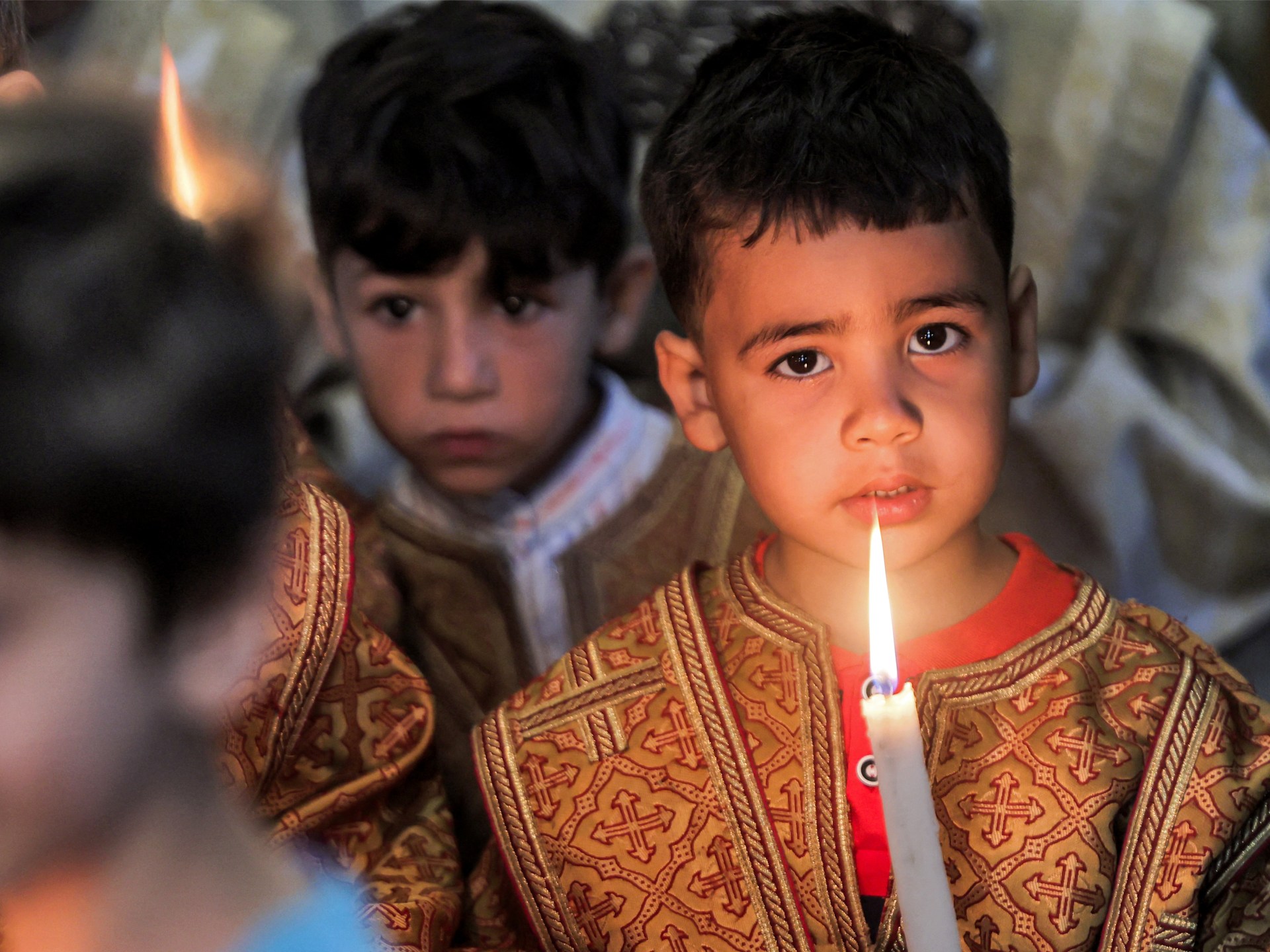When Khalil Sayegh thinks back to his childhood in the Gaza Strip, the Greek Orthodox Church of Saint Porphyrius looms large in his memory.
Sayegh, now 29, remembers the weddings, the Sunday School classes, the music lessons and the visits to the tiny graveyard.
Trump’s political comeback has added a new layer of uncertainty for Palestinians – not just those inside Gaza, which Israel has subjected to near-relentless bombardment and ground assaults for the past 13 months – but also those who, like Sayegh, have family there and are watching helplessly from afar.
They have been deeply angered by the current Democratic Party administration’s failure to hold Israel to account for a war which has resulted in the deaths of more than 43,391 Palestinians – and thousands more who are missing and presumed dead under the rubble. More than 100,000 people have been injured and nearly all the enclave’s population of 2.3 million are displaced.
Sayegh’s homeland, which now lies largely in rubble and ruins, has been ravaged in the past year by this war, which has been largely funded by the US. Hundreds of thousands of homes have been destroyed while hospitals and schools have been targeted in Israeli strikes.
But Sayegh returns to memories of better times. A member of the Gaza Strip’s small but ancient Christian community, he recalls, particularly, the Divine Liturgy celebrated at St Porphyrius every Sunday – the lengthy, ancient rite blending chanting, incense and prayers in Arabic and ancient Greek.
The church and surrounding compound, parts of which date back to the 5th century CE, was a hub for Gaza’s Christian community.
Today, much of it lies in ruins. In October last year, an Israeli air strike destroyed one of the buildings in the compound, killing at least 17 people.


